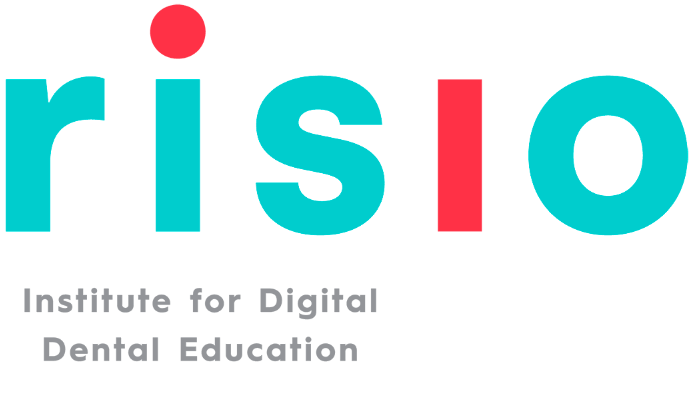Summary:
- Ontario’s aging population and growing awareness of oral health are driving up the demand for dental services. This increase particularly affects the need for Dental Assistants and Hygienists, leading to staffing shortages in these roles.
- The limited number of training programs for Dental Assistants and the draw of other sectors for potential candidates in administrative and steritech roles can make it challenging for dental practices to find qualified staff.
- Inadequate staffing can lead to operational instability, service gaps, and a negative impact on patient experiences. This, in turn, can harm your practice’s reputation and its long-term success.
- Upgrading the skills of existing staff, like steritechs or dental administrators, to dental assistants and focusing on hiring candidates with foundational dental knowledge can provide a buffer against sudden staff shortages, ensuring continuity of care and maintaining operational stability.
- Risio makes it easy to hire strong entry-level staff for your practice through our Dental Aide program, and can help them upgrade their skills to become full Dental Assistants while they work. Contact us to make sure your practice is always properly staffed.
How the Current Labour Shortage is Impacting Dentists in Ontario
The unemployment rate in Ontario rose in 2023, even as many sectors experienced job growth, which strongly suggests that there are important vacancies just waiting to be filled by qualified applicants. If you’re a dentist in Ontario, chances are good that you’ve already experienced staffing shortages at your practice in the last year or two—and if you haven’t yet, it could still happen soon.
But learning a little more about the current labour market can help—especially if you take proactive steps to make sure your workplace always has coverage. In this article, our team at Risio Institute shows you what roles at your practice are most likely to be affected and why upgrading a steritech or dental administrator to a dental assistant can keep your practice going in the event of a shortage.

The Most Vulnerable Roles in Your Ontario Dental Practice
Ontario’s current labour problems are more likely to impact some roles at your dental practice than others. These include:
- Dental Assistants: Ontario’s aging population means a greater demand for the kinds of services Dental Assistants perform, such as appointment preparation and taking X-rays. Dental Assistant training programs like Risio’s are also relatively scarce compared to vocational training for other programs, which means the pool of qualified candidates is limited.
- Dental Hygienists: Dental Hygienists are also in demand across Ontario, due to growing patient needs. Since many dental assistants go on to become hygienists later in their careers, the number of available candidates for these positions is even smaller.
- Steritechs: Young people at the start of their career may be tempted to look for jobs in restaurant service or retail instead of healthcare—despite the significant advantages of entry-level jobs in dental practices.
The Risks of Understaffing
Any Ontario practice without adequate coverage for all of the positions listed above faces risks that can have a significant negative impact on daily operations and long-term success:
- Operational instability: Understaffing increases the risks of delayed procedures, patient flow problems, and administrative errors.
- Service gaps: Not having proper coverage (especially for dental assistants and hygienists) creates longer wait times for patients and a bigger risk of cancellations.
- Negative patient experiences: Dissatisfied patients are more likely to seek care elsewhere, making patient retention a challenge for understaffed practices.
- Reputation damage: Negative patient experiences can quickly translate into poor reviews and decreased referrals, impacting your practice’s reputation and future business.
See Also: The Best Way for Dental Practices to Avoid Understaffing

Upgrading Your Entry-Level Staff: An Insurance Policy During Labour Shortages
Losing key staff members during the labour shortage when you don’t have contingencies in place exposes your practice to all of the risks listed above. To avoid this, many practices are taking the following steps:
- Upgrading at least one current steritech or dental administrator with the qualifications to become full dental assistants. This creates an important redundancy and allows you to have someone with the skills needed to step in if you suddenly lose a dental assistant due to factors beyond your control (maternity leave, an emergency, sudden resignation, etc.).
- Hiring steritechs and dental administrative staff who have a strong foundation of dental knowledge and familiarity with clinical basics. Risio’s Dental Aide Program is aimed at helping early career seekers develop these skills so they can excel in these roles.
Costs vs. Benefits
Does upgrading an employee cost your practice anything? It depends. Some practices pay for their staff members to upgrade their skills through our diploma program, while others leave it to staff members to cover their own costs if they want to develop the skills to go further in their careers.
As for wages, it’s true that you pay more for a qualified dental assistant than someone in an entry-level role—but these costs are nothing compared to the potential revenue loss from not having a dental assistant when your practice needs one. To sum up:
Potential Costs of Upgrading Staff:
- Training costs (can be partial or optional depending on your policy as an employer)
- Higher wages (dental assistants in Ontario make about $5-7 more than steritechs on average)
Potential Benefits of Upgrading Staff:
- Improved patient experience
- Stronger business reputation
- No loss in revenue due to sudden staffing shortages

Keep Your Practice Properly Staffed with Help from Risio
Risio’s Dental Assistant Distance Diploma Program allows your entry-level staff members to become qualified dental assistants while continuing to work in your practice via our Work Integrated Learning requirements. This means you get to keep your practice staffed while upgrading team members to be more versatile and useful in the future.
Hiring candidates who have recently completed our Dental Aide program as steritechs or in administrative roles can also benefit you by ensuring that these positions are filled by people with a strong foundation for success. Contact us to learn more about how you can find qualified applicants for your practice’s most important positions at all levels.
Frequently Asked Questions
How many hours per week can my staff members work while studying at Risio?
Our Work Integrated Learning requirements mean that all students must complete at least 14 hours per week of work in a professional setting while enrolled. Since many steritechs and administrative assistants work part-time, this means your staffing should be minimally impacted while a member is upgrading.
Will my staff member need to complete a practicum? Can they do it at my practice?
All students in our Ontario program are required to complete a final in-office practicum of 3 weeks (or 120 hours) after finishing their clinical and theoretical modules. This practicum can be completed at any dental practice in Canada, although most students complete the final practicum hours in the dental office that they have been working at for the duration of the program.
How much does Risio’s Ontario Diploma Program cost?
Fees for our Ontario program are as follows:
- Tuition: $9000 initial, $6000 due on the 10th month
- Textbooks: ~$300
- Online Exam Proctoring: ~$180

